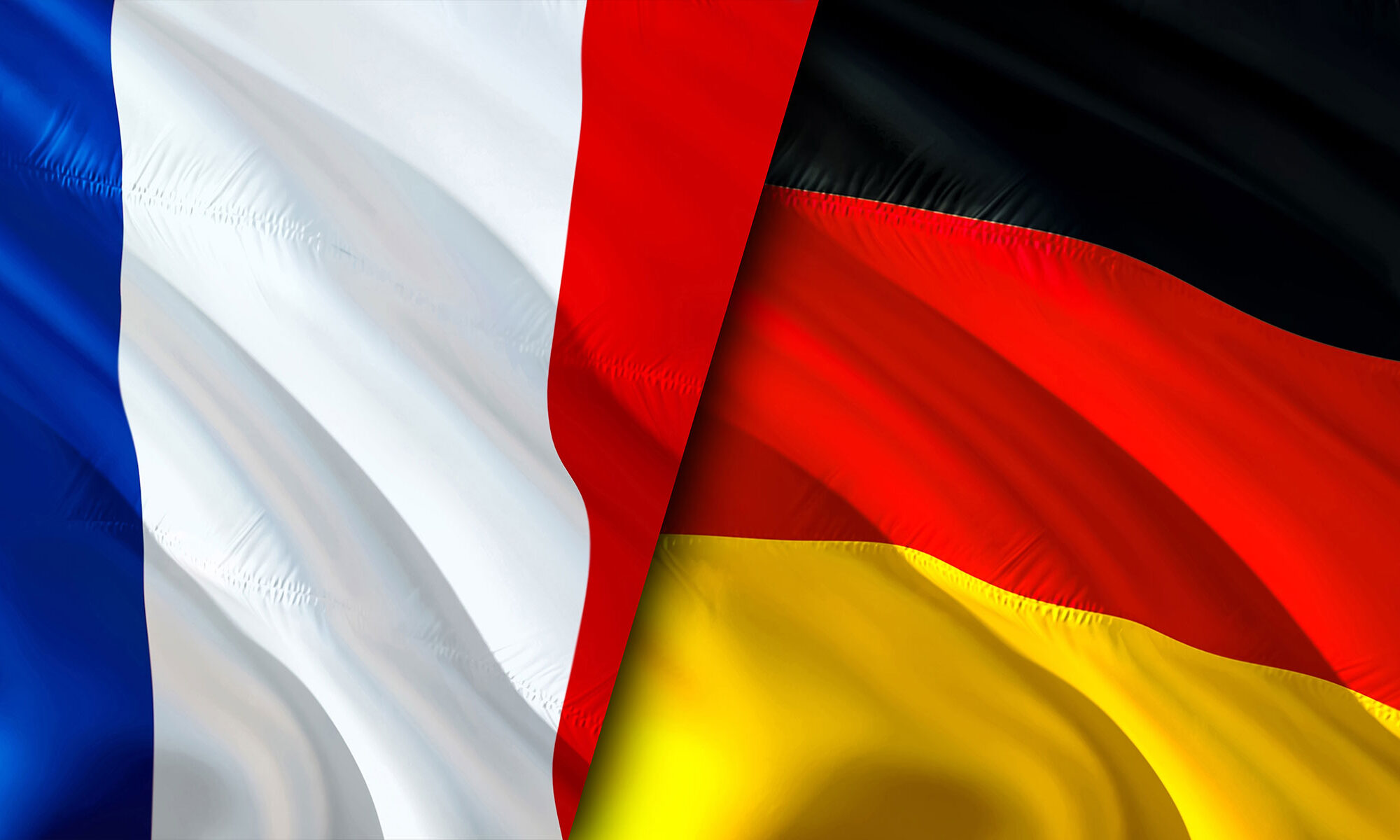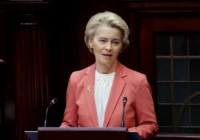On September 26, German voters will go to the polls to elect a new Bundestag. The election marks the end of the Merkel era. It is supposed to ring in a new beginning, an Aufbruch, as they say in German. What is largely missing, however, is Aufbruchsstimmung — a certain positive mood fueled by expectations. It appears that the Germans don’t expect very much, whatever the outcome of the election.
The outcome, in turn, is completely open. The composition of the post-Merkel government depends on how many votes each of the major parties will manage to capture. Several coalitions are possible, center-right, but also center-left. Much hinges on the results of the Greens and the liberals. And there is the additional factor of the radical populist right, the Alternative for Germany (AfD), which commands around 10% of the vote.
From Merkel to Baerbock: Female Politicians Still Face Sexism in Germany
Shunned by all other parties, the AfD remains a nuisance factor, particularly in its strongholds in the eastern part of the country where it has established itself as the voice of all those who feel disregarded and disrespected, who consider themselves second-class citizens in unified Germany.
No Alternative
Next year, French voters are called upon to elect a new president of the republic. As it looks now, nothing will change. Macron is likely to get reelected, largely by default. As Margaret Thatcher once famously put it, albeit in an entirely different context, “There is no alternative.”
In French presidential elections, there is, of course, always an alternative. The alternative is Marine Le Pen, leader of the Rassemblement National (National Rally), the rejuvenated, remodeled successor to her father’s National Front.
Marine Le Pen has gone a long way to refurbish and embellish the face of France’s “extreme” right, to the point where many on the hard right no longer wish to be associated with the party. Their charge: Marine Le Pen is far too much to the left.
The results of the recent regional elections have shown that Le Pen’s strategy to moderate her party’s image did not work. It had hoped to win at least one or two regions but came out of the election with empty hands. Surveys paint a similar picture. Although the party records some gains among a few groups like the youth, overall, its base of support has been stagnant. Nothing suggests that this is likely to change in the foreseeable future.
This in itself is quite remarkable. It is generally thought that the far right does particularly well in times of crisis. This was the case, most recently, in the aftermath of the 2008 global financial crisis that boosted the fortunes of a number of radical right-wing populist parties in Europe. Today, at least in France, the situation is even more propitious for the radical right, yet Marine Le Pen has largely failed to capitalize on it.
If in Germany the general mood is somber these days, in France it is outright morose — and alarmist, and panicky. The word is déclin. To be sure, the French have always had a certain penchant for conjuring up the specter of decline, more often than not informed by the fear that the country was falling behind its neighbor to the east.
In 1953, as France was about to embark on what would come to be known as the Trente Glorieuses — the postwar “golden age,” a point of reference for contemporary French nostalgia — prominent politicians in all seriousness proclaimed that the time of decline had come. Some 30 years later, different times, same refrain. In the 1980s, leading publications were publishing national surveys exploring the decline of France.
Today, history repeats itself once again, perhaps more dramatically and desperately. How else to make sense of a statement by Jérôme Fourquet, in charge of public opinion at Ifop, a premier French polling and market research firm, who compared the situation in France today to the defeat of its army in 1940: One thought France was strong, only to be swept away by Germany.
Wrong Direction
Today again, there is an acute sense that things are going in the wrong direction — that France is falling behind, that it is being relegated to the minor leagues, as Jacques Juillard has put it in the pages of Le Figaro. The phrase reflecting these sentiments is “le grand déclassement,” which made its way into the public debate in the spring of last year.
It was provoked by the experience of the beginning of the pandemic, particularly the lockdowns, which confined the French to their homes “like in the Middle Ages,” as an editorial in Le Figaro put it in late April. And this because the country lacked the industrial capacities to produce the equipment necessary to protect the population or at least furnish protective masks. And of course, once again France was compared to Germany — the country “that managed the pandemic the best.”
In the meantime, that narrative of le grand déclassment has been significantly expanded. The most recent example is an expose on France’s decline in the field of research and development in the latest issue of Futuribles, a decline seriously jeopardizing France’s competitive position in the world. Here, as in many other areas, France has been overtaken by Germany, as another editorial in Le Figaro noted recently. No wonder the country has fallen into a state of “collective depression,” with no end in sight.
The results of the most recent extensive inquiry into the state of French public opinion, Ipsos’ Fractures françaises, largely confirm that much of the country has fallen into a deep psychological black hole. Some key findings: A large majority of the population (78%) shares the view that France is in decline; 60% think globalization poses a threat to the country; and almost two-thirds that France should protect itself more against today’s world.
In the meantime, little appears to have changed. In a survey from August 2020, 55% of respondents said they were pessimistic with regard to their future and that of their children.
If ever there was one, this is the perfect “populist moment.” Populist moments go to waste, however, if there is no populist entrepreneur to exploit them. Enter Eric Zemmour, the ubiquitous media personality, journalist, editorialist, polemicist, provocateur and the great new white hope for all those on the right who have written off Marine Le Pen’s National Rally.
Like so many on the far right, Zemmour is obsessed with “le grand remplacement,” the notion that one day in the not-so-far future, immigrants are going to “replace” the native population. As he recently put it on French TV, by “2050, France will be half Islamic; by 2100 we will be in an Islamic republic.”
Zemmour might not (yet) have announced his candidacy, but he certainly has said all the right things to rally the troops, on immigration, Islam, the decline of the nation. His grand idea: Today France is divided between those who fear le grand rechauffement (global warming) and those who fear le grand déclassement (downward social mobility).
This was the conflict that not so long ago provoked the eruption of social protest associated with the yellow vests. The movement came to a screeching halt with the beginning of the pandemic, only to morph into a new one, this time against the government’s anti-COVID-19 measures, against vaccinations and the threat of a “health passport.” It reflects a growing polarization between the great metropolitan areas and the rest of the country, between cosmopolitanism and parochialism, between an open and a closed society.
These conflicts have been around for some time. With Zemmour, they might have found a new champion — provided he chooses to run for the presidency. With his latest book due to appear in a few days, it might, of course, be no more than a clever ploy to boost sales. In any case, Zemmour promises to remain a nuisance factor on the right that, should he run, is likely to significantly diminish the chances of any center-right candidate progressing to the decisive second round of next year’s presidential election.
Island of Calm
Compared to France, preelection Germany looks like an island of calm. Yet appearances are deceptive, even in Germany. As has been the case elsewhere in Europe, Germany has been hit hard by the pandemic and, like elsewhere, was not prepared to face a crisis of these dimensions. For a country known for its efficiency, it took quite a long time to get organized.
At the same time, the pandemic laid open the shortfalls of the famed “German model,” particularly in the field of communication technology. As a commentary in Germany’s premier news magazine Der Spiegel put it in March of this year, with respect to the country’s handling of the pandemic, Germany received “null Punkte” — zero points.
The pandemic has drastically shown that Germany needs a new beginning. And this was before the catastrophic floods that left entire towns and villages this summer devastated as if hit by a bombing raid. The floods caused billions worth of damage. At the same time, the extent of the destruction served as a drastic reminder not only that climate change and global warming were real, but also that a continuation of Panglossian politics of neglect would likely end in disaster — and this much sooner than expected.
The message appears to have arrived. A survey from late September found more than 70% of respondents agreeing with the statement that the catastrophe was a direct result of climate change. Some 80% agreed that the government had to do more for the environment. Only a majority of AfD supporters disagreed with both statements.
The combination of a pandemic and a climate catastrophe has seriously damaged Chancellor Angela Merkel’s image and, with it, the fortunes of her Christian Democratic Union. For weeks now, the party has been in a free fall in the polls. The most recent polling has it hovering around 20%, some five points behind the Social Democrats, the culmination of a dramatic turnaround that opens the possibility that the next chancellor will come from the center left.
Angela Merkel has recently warned that the upcoming election represents a Richtungswahl — an election that will determine which direction the country is going to take. In reality, however, there can only be one direction, toward accelerated decarbonization, toward more social justice, toward a rapid modernization of the country’s physical and digital infrastructure.
With the British exit from the European Union and France’s self-absorption, Germany is left alone as the uncontested leader in Western Europe. If in the past this was a nightmare scenario, today it is no longer, or at least less so. The new German government better be prepared to assume its responsibilities.
*[Fair Observer is a media partner of the Centre for Analysis of the Radical Right.]
The views expressed in this article are the author’s own and do not necessarily reflect Fair Observer’s editorial policy.
Support Fair Observer
We rely on your support for our independence, diversity and quality.
For more than 10 years, Fair Observer has been free, fair and independent. No billionaire owns us, no advertisers control us. We are a reader-supported nonprofit. Unlike many other publications, we keep our content free for readers regardless of where they live or whether they can afford to pay. We have no paywalls and no ads.
In the post-truth era of fake news, echo chambers and filter bubbles, we publish a plurality of perspectives from around the world. Anyone can publish with us, but everyone goes through a rigorous editorial process. So, you get fact-checked, well-reasoned content instead of noise.
We publish 2,500+ voices from 90+ countries. We also conduct education and training programs
on subjects ranging from digital media and journalism to writing and critical thinking. This
doesn’t come cheap. Servers, editors, trainers and web developers cost
money.
Please consider supporting us on a regular basis as a recurring donor or a
sustaining member.
Will you support FO’s journalism?
We rely on your support for our independence, diversity and quality.








Comment